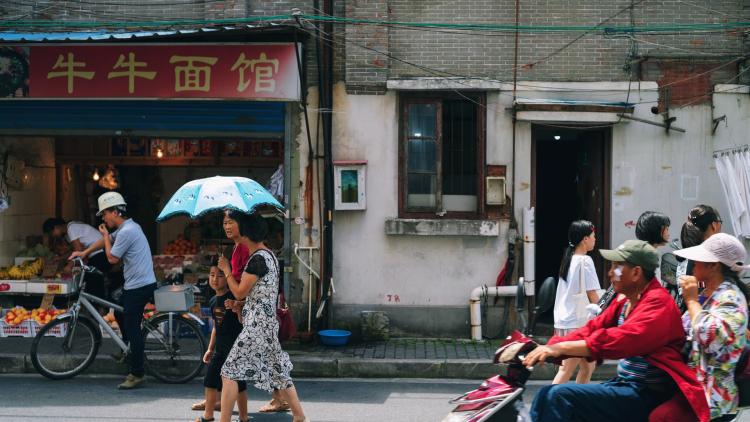New Taiwan Cinema and Beyond

Key information
- Status
- Module not running
- Module code
- 155903011
- FHEQ Level
- 6
- Credits
- 15
- Department
- China and Inner Asia Section
Module overview
This module surveys the development of Taiwan cinema from the 1960s to the present, with special focus on contested national identities on screen. Critical approaches to film studies such as film semantics, auteur theory, gender and genre will be introduced to examine representative works by Hou Hsiao-hsien, Edward Yang, Ang Lee, and many others.
This module is open to students with various Chinese language proficiency, from no language to Chinese mother-tongue. Students with advanced level knowledge of Chinese will be provided with supplementary film scripts and critical essays in Chinese.
Objectives and learning outcomes of the module
On successful completion of this module a student will be able to:
- Identity important directors, actors and films from Taiwan
- build analytical skills for film analysis and master the concepts and analytical frameworks such as genre, auteurism and gender.
- Use visual materials for the critical interpretation of histories and cultures in Taiwan
Workload
Total of 10 weeks teaching with 2 hours classroom contact per week consisting of a 1 hour lecture and a 1 hour seminar.
Scope and syllabus
The following syllabus is for guidance only and is subject to alteration at the discretion of the module convenor.
- Week 1: Introduction
- Week 2: Idealising Taiwan: Healthy Realism
- Week 3: New Taiwan Cinema: the Early Stage
- Week 4: Hou Hsiao-Hsien: Trauma and Memory
- Week 5: Edward Yang: Confronting Modernity
- Week 6: Reading Week
- Week 7: Tsai Ming-Liang and Slow Cinema
- Week 8: Representing Male Homosexuality on Screen
- Week 9: Diasporic/transnational Cinema
- Week 10: Post New Taiwan Cinema
- Week 11: Sinophone Cinema: Debates and Controversies
Method of assessment
- Reaction paper of 800 words, OR, a video essay of 6 minutes (30%)
- Essay of 2,500 words (70%)
Suggested reading
Hong, Guo-Juin. "Healthy Realism in Taiwan, 1964-80: Film Style, Cultural Policies and Mandarin Cinema." In Song Hwee Lim and Julian Ward, eds., The Chinese Cinema Book. London: BFI, 2011, 95-102.
Lu, Tonglin. “Taiwan New Cinema and Its Legacy.” In The Chinese Cinema Book, edited by Lim Song Hwee and Julian Ward, 122-130. London: BFI and Basingstoke, Hampshire: Palgrave Macmillan, 2011.
Yip, June. “Constructing A Nation: Taiwanese History and the Films of Hou Hsiao-hsien”, in Sheldon Hsiao-peng Lu (ed.), Transnational Chinese Cinemas: Identity, Nationhood, Gender (Honolulu: University of Hawaii Press, 1997), 139-168.
Jameson, Fredric. “Remapping Taipei”, in Jameson, The Geopolitical Aesthetic (London: BFI Publishing, 1992), 114-157.
Chan, Kenneth. “Goodbye, Dragon Inn: Tsai Ming-liang’s Political Aesthetic of Nostalgia, Place, and Lingering.” Journal of Chinese Cinemas 1, 2 (May 2007): 89-104.
Berry, Chris. “Wedding Banquet: A Family (Melodrama) Affair.” In Chinese Films in Focus. 25 New Takes, edited by Chris Berry, 183-190. London: British Film Institute, 2003.
Teo, Stephen. “Wuxia Redux: Crouching Tiger, Hidden Dragon as a Model of Late Transnational Production,” in Meaghan Morris, Siu Leung Li, Stephen Chanching-Kiu (eds.), Hong Kong Connections: Transnational Imagination in Action Cinema. Durham: Duke University Press, 2005.
Chialan Sharon Wang, “Memories of the future: Remaking Taiwanese-ness”, Journal of Chinese Cinemas, 6:2 (2012) 135-151.
Song, Hwee Lim. “The Voice of the Sinophone”, in Audrey Yue and Olivia Khoo, eds., Sinophone Cinemas, Basingstoke : Palgrave Macmillan, 2014.
Disclaimer
Important notice regarding changes to programmes and modules
